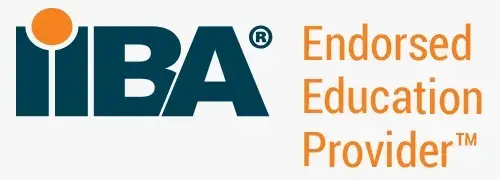The Professional Scrum Master (PSM) Certification Programme is made to help you land one of the IT
industry's most sought-after positions. It covers the Scrum master position and responsibilities, the Scrum Framework, and the Scrum Principles.
In this guide, we will take a closer look at everything you need to learn about the PSM Certification. Keep reading for happy learning!
What Is Professional Scrum Master Certification?
The Professional Scrum Master (PSM) Certification and training workshop is offered by Scrum.Org.
Ken Schwaber, a co-creator of the Scrum Framework, founded Scrum.Org as a scrum training and certification company after leaving Scrum Alliance in 2010.
Hence, the candidates learn a lot about Professional Scrum and the role of the Scrum Master in this
interactive, activity-based Professional Scrum Master (PSM) Certification. Moreover, the candidates also
gain a thorough understanding of the fundamental concepts of Scrum and the Agile Mindset while studying
the techniques used by effective Scrum Teams through a combination of discussion and exercises.
Due to its reputable exam, top-notch instructors, and consistent course material, PSM is acknowledged
as the most sought-after credential for Scrum Masters and agile coaches globally. Many businesses will only hire PSM holders for the position of Scrum Master.
Why the PSM Certification?
The Scrum Master Certification can be useful if you like working in teams and are interested in the Scrum
Framework. Your knowledge and expertise in the Scrum Framework are validated by this certification.
A PSM Certification also makes you stand out from other job applicants, develops your ability to collaborate
and assess risk, and may lead to new employment prospects for you. Here are some benefits of attaining this certification:
1. Makes Your Resume Stand Out
- You may demonstrate to potential employers that you've taken the required steps to keep up with industry standards,
latest trends, and technology in Product Development by including your Scrum Master Certification on your resume.
- Additionally, you're demonstrating that you know how to lead your team to a successful end using Scrum concepts and methodologies.
2. Develops a Solid Scrum Foundation
- A Scrum Certification is the best approach there is to learning Scrum. It assists in your effective acquisition of the fundamentals,
Agile Principles, and best practices. It will help newcomers to properly understand the Scrum Framework.
- Even Scrum practitioners with prior experience can gain ground-breaking knowledge that will assist them to overcome challenges while managing large Scrum teams and various departments.
3. Increases the Effectiveness of Your Team
- You can work with your team more productively and successfully if you earn your Scrum Master Certification.
- As your team works toward each goal, you'll understand how to inspire them to remain organized and focused.
4. Improve Your Risk Assessment Techniques
By studying Scrum Methodology, you may foresee events and problems before they happen and spot risks and hazards before they turn into major issues.
5. Provide Value and Ensure Product Quality
- The two fundamentals of Agile are to provide value and to guarantee product quality. Scrum is effective at accomplishing these.
- Scrum Certification will help you earn the specifics of giving value and assuring product quality.
6. Higher Compensation than Non-Certified Professionals
A PSM Certification sets you apart from your peers who aren't certified and gives you practical knowledge of Scrum. Without a Scrum Certification, it is very hard to obtain an entry-level position in a Scrum role.
To get an idea about the compensation for the PSM-Certified Professionals, you can refer to below.
- According to Payscale,
the average annual salary of a PSM-Certified Professional is $97,000.
- According to AmbitionBox, the average annual salary of a PSM-Certified Professional in India is Rs 14,70,000.
Cost of PSM Certification
There are three certification levels offered by Professional Scrum Master (PSM I, PSM II, and PSM III). In other words, the three
levels of Professional Scrum Master Certifications are referred to as follows:
- Foundational (PSM I)
- Intermediate (PSM II)
- Advanced (PSM III)
Here is the cost structure for all three of these PSM levels.
| Cateogry |
PSM I |
PSM II |
PSM III |
| Exam Fee |
$150 |
$250 |
$500 |
| Exam retake fee |
$150 |
$250 |
$500 |
| Certification Validity |
Lifetime |
Lifetime |
Lifetime |
The price of PSM1 Certification varies by nation.
The price of PSM1 Certification in various nations is shown in the table below.
| Country |
PSM 1 Certification Cost |
| India |
₹23500-₹26000 |
| USA |
USD 999 - USD 1,450 |
| Canada |
CAD 1400 – CAD 1600 |
| UK |
£750 -£950 |
| Australia |
AUD 950 - AUD 1500 |
Eligibility Criteria for PSM Certification
There are certain eligibility requirements that a candidate has to clear before he or she can opt for the certification.
Below are the eligibility criteria for all three levels of the certification - PSM I, PSM II, and PSM III.
|
PSM I |
PSM II |
PSM III |
| Eligibility Requirements |
- Opting for a training course is not mandatory and is optional (But it is recommended)
- Understanding of the Scrum Guide
|
- Advanced knowledge of Scrum
- You should have extensive Scrum experience and/or have completed the Professional Scrum Master Course.
|
- Pass the PSM I and PSM II Certification
- Depth understanding of the Scrum Application, Scrum Processes, and Scrum Values
- In-depth Scrum experience and/or have attended the Professional Scrum Master training before taking this certification.
|
Is PSM Certification Tough?
- Scrum.org offers the Professional Scrum Master level I (PSM I) Certification
as a lifetime, low-cost online credential. It is well renowned for being exceedingly difficult; passing it requires an unusually high score of 85%.
- Hence, it means that passing the PSM Certification does require some of your time investment for studying and preparing for the exam.
PSM Exam Format and Syllabus
To get an idea about the PSM exam format and what is covered in the exam, you can refer below.
Exam Format
- The PSM exam is conducted online
- 60 minutes time duration
- 80 Multiple choice and true/false questions
- Available only in the English language
What is Covered in The PSM Exam
- Scrum Framework- Every member of a Scrum Team should be familiar with the Scrum Framework.
The Scrum Guide's description of Scrum theory is covered.
- Scrum Theory and Principles - This section focuses more on comprehending Scrum theory, including
the empirical method, Scrum's guiding principles, and its core values.
- Self-organizing, cross-functional teams - The questions raised in this section are how cross-functional,
self-empowered, and self-organizing people foster flexibility, creativity, and productivity in Scrum Teams
as opposed to traditional development teams.
- Facilitating and Coaching - The focus of this discussion is on how the mindset and conduct of a
Scrum Master differ from those of a traditional Project Manager. By taking on the role of a Servant Leader,
a Scrum Master helps and coaches entire organisations in comprehending and utilising Scrum.
PSM Certification Process
To understand the PSM Certification process a little better, here is a brief overview of what you have to go through if you wish to get PSM certified.
- Professionals seeking PSM Certification must successfully complete an online assessment administered by Scrum.org and pay the required cost.
- Even though it is not required, it is highly useful to take a Professional Scrum Training hosted by Scrum.org.
There are programmes available to help people be ready for assessments based on the role they play. The candidate has the option of taking
either the Professional Scrum Master or Professional Scrum Foundations 2-day courses.
- The candidate must read the Scrum Guide and complete the exam on the Scrum.org website relevant to Scrum Masters
and Product Owners assessments.
- Finally, the candidate must complete 68 of the 80 questions on the PSM I exam, which are made up of True or False
and Multiple Choice questions, in 60 minutes in order to pass. The passing mark is 85%.
Preparation Approach to Crack PSM Certification
Here are some recommendations for taking and clearing the Professional Scrum Master (PSM) exam offered by Scrum.org that you can follow to become PSM certified.
- Complete a Scrum.org Professional Scrum Master Course, if possible.
- As an alternative, register for our Techcanvass PSM Training Course to learn more quickly and affordably.
- Get well-versed in the Scrum Guide by reading it. This is the main resource for the assessment's solutions.
- Take a lot of practice tests or mock exams to self-assess your preparation level.
- Go through the Scrum Guide.
- Leverage the Scrum Guide Audio and listen to it carefully
- Use the Scrum Open Assessment on Scrum.org to evaluate your understanding.
Techcanvass Training Programme
Techcanvass offers the Professional Scrum Master Certification Training Course, which covers the entire curriculum, practice questions to pass the test, and numerous other features.
You will get access to industry professionals as your trainers, mock questions, mock tests, flashcards & drills, cheat sheets, special workshops with doubt clearing sessions and mock questions practice sessions, and so much more.
To begin your PSM journey, enrol now for the PSM Certification Training Course.
CSM VS PSM
The most important and well-known course in the Scrum Framework is the Certified Scrum Master (CSM) credential.
The first Scrum Master Certification, known as CSM, is widely accepted. The majority of applicants who join
Agile firms as Scrum Masters hold the CSM Certification.
Alternatively, the two-day PSM Certification Course covers the fundamentals of the Scrum Framework,
including the function of the Scrum Master within it, as well as empirical process theory.
Let’s learn the differences between CSM and PSM.
| Basis |
CSM |
PSM |
| Accreditation |
Scrum Alliance |
Scrum.org |
| Training |
The candidates must attend the training sessions in order to take the test. The training is provided by Certified Scrum Trainers(CST). |
Professional Scrum Trainers(PST) instruct the students. To take the test, however, the training is not necessary. |
| Eligibility Criteria |
There is no prerequisite for this course, therefore anyone interested in pursuing the CSM Certification may join. |
There is no requirement for this course, therefore anyone interested in pursuing the PSM Certification may opt for it. |
| Salary as per PayScale |
The average annual salary of a Certified Scrum Master is $95,409 |
The average annual salary of a Professional Scrum Master is $97,000. |
| Criteria for Passing The Exam |
To pass the test, the candidate must properly answer at least 37 out of 50 questions. |
To pass the test, the candidate must correctly answer at least 68 out of 80 questions. |
Conclusion
The Professional Scrum Master makes the Scrum organization more valuable and makes sure the team works together
well to create high-value products. They establish a process, inspire Scrum Developers to optimize their production,
and raise the organization's business value. If you are ready to take your career to the next level as a Scrum Master,
then attaining the PSM Certification is a wise choice.
We hope this article was insightful and you were able to make the right decision towards your Scrum Master journey.
Your first step can be enrolling for the PSM Certification Training Course.
About Author

Abhishek Srivastava
-Senior IT Professional , CBAP Certified
Abhishek Srivastava is a seasoned IT professional with diverse experience in Banking, Insurance, Utility and Education domains.
Managing large accounts, Program management & Business Analysis has been his forte, having done so for customers like ICICI Bank,
NTPC & many other International customers.
In the past, he has been associated with companies like Mastek and 3i Infotech Ltd (erstwhile ICICI Infotech Ltd). An NIT (Erstwhile REC)
/ IIM Kozhikode graduate, now as an entrepreneur, he is pursuing his dream of creating an organization for providing quality training
in the fields of Project Management and Business Analysis. His other areas of interest are Business Analysis consulting and mentorship.
Over the years, he has mentored and guided more than 1000 professionals



